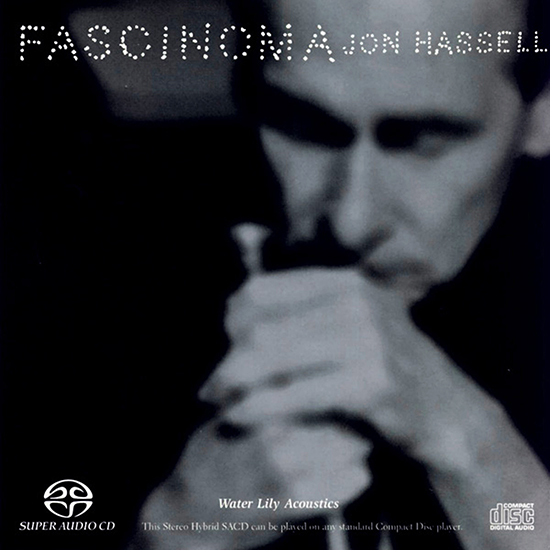On Saturday, the world lost a native son of Memphis, a trumpet player and innovator who few know of here, and even fewer associate with the Bluff City. Jon Hassell was a tireless pioneer of new sound possibilities offered by the trumpet, especially when paired with electronic processing techniques, but also a creator of cross cultural hybrid musics that defied easy categorization by genre.
Best known for partnering with composer and producer Brian Eno, he was a venturesome collaborator whose playing appears on records by Peter Gabriel, Talking Heads, Ry Cooder, David Sylvian, Ani DeFranco, Tears for Fears, and many others. Moreover, he was an innovator and solo artist in his own right who developed the concept of “Fourth World” music, based on blending global cultural traditions of sound with futuristic audio processing.
As detailed by Jared Boyd last year in The Daily Memphian, Hassell took to the horn at an early age, after inheriting an old cornet that his father had played at Georgia Tech University. After playing in the Messick High School band and taking private lessons from trombonist Jack Hale, Sr., Hassell went on to study at the Eastman School of Music in Rochester, New York.
That was where he became more formally interested in the avant garde, especially the work of Karlheinz Stockhausen. He ultimately enrolled in Stockhausen’s Cologne Course for New Music in Germany, then returned to the U.S. and worked with minimalist composer Terry Riley, performing on the first recording of Riley’s seminal work In C in 1968. This led to his work with La Monte Young and the Indian singer Pandit Pran Nath.
And yet, in an in-depth interview with the RA Exchange podcast in 2016, Hassell retrospectively traced his interest in cross cultural sounds and electronic music to his earliest days in Memphis. As he put it:
It’s deep, there [in Memphis], for sure. There’s a question I always think about. I’m very blessed to have been born in Memphis rather than Idaho or someplace, or even Chicago. There’s a crossing. You talk about the crossing of cultures, and where does that come from? The era of segregation was still present, so I was introduced to it from that, looking across the racial divide point of view. Parked on my street might have been Johnny Cash’s beat up stretch limo, and at the same time, there was an African American guy, Henry Barnes, who was a kind of helper for my family, and very trusted, and would take my older brother and sister to school on a bike. And things like that.
I remember him taking me out to a — you know the word ‘joint’? Like a Mississippi-type place that’s made of RC Cola signs nailed together on a wooden frame? He took me out to this proto-juke joint in the outskirts of Memphis someplace, and it’s one of the big sound experiences I ever had … although I cannot … Like all I can do, speaking of, is it better to imagine or better to be? I cannot imagine what that, I can’t quite recreate it in my mind, other than to say it was probably the very earliest electronic instrument thing going on, like the very first, earliest amplifiers and guitars and things like that.
It was just so astounding to me. And as I speak about it I’m still like one of those cartoons where your head is going boiiing! Right? I’m still blown away by it. And you could spend a lifetime just trying to mine, and imagine what that was. And back to the crossing of cultures thing: I thought to myself later, after I left, you never really know your place, even if you grow up in a small town, you don’t really know what it is until you leave and you look back on it again.
Jon Hassell died at age 84 of natural causes, after suffering from ill health for over a year. His last studio album Seeing Through Sound (Pentimento Volume Two) was released in 2020.
